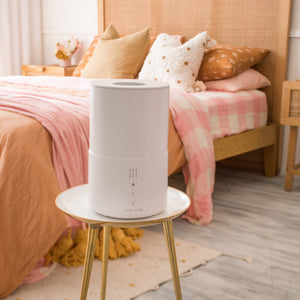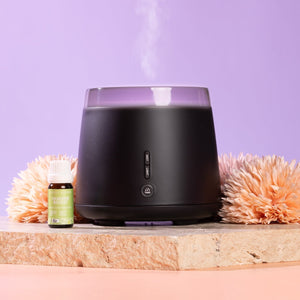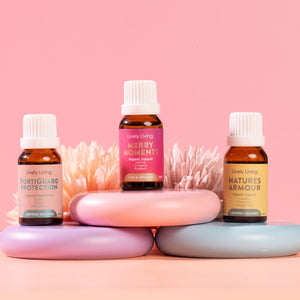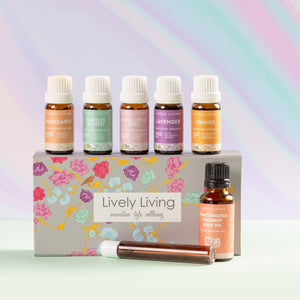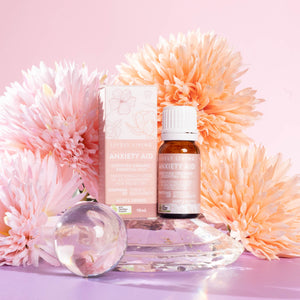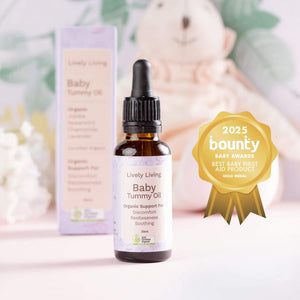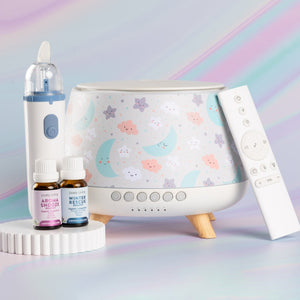Guide to Wellbeing for Over 50’s: Tips for a Healthy & Fulfilling Life
Turning 50 is a significant milestone, but it's also a time when you may start to think more about your wellbeing for over 50's. With age, your body changes, so you must adapt your lifestyle to maintain good health. This doesn’t mean you can't still enjoy a full and active life. In fact, this stage of life offers an amazing opportunity to focus on your overall wellbeing for over 50's, both physically and mentally.
Table Of Contents
- Maintaining Physical Health in Your 50s and Beyond
- Taking Care of Your Mental and Emotional Well-being
- Seeking Help When You Need It
- FAQs about Wellbeing for Over 50's
- Conclusion
Maintaining Physical Health in Your 50s and Beyond
Our bodies are a bit like cars: regular maintenance helps them run smoothly for longer. Just as your car needs tune-ups and oil changes, your body requires special attention as you age. It’s vital to understand the changes occurring within you and to adopt practices that help you age healthfully.
This section is a roadmap, guiding you through the key areas of physical wellbeing as you navigate this new chapter of life. You will learn about healthy eating active living as well as important check-ups you should have with your doctor.
The Importance of Regular Check-ups and Screening Tests
Getting regular checkups becomes more important as you get older. Even if you feel great, regular health checks are essential.
These allow doctors to identify any potential health problems early, when they are often easier to treat. Cardiovascular disease is a common concern after 50.
Screenings for blood pressure, cholesterol levels, and blood glucose can be real lifesavers. Think of it like scheduling regular maintenance for your car to prevent breakdowns on the road. Your doctor will help you decide which screening tests are best for you based on your medical history and lifestyle.
Remember, taking preventative measures and monitoring your current health is essential to maintaining wellbeing in your 50s and beyond. This empowers you to stay informed and proactive in your health journey.
Nutrition for Over 50's: Fueling Your Body for Vitality
As we age, what we put into our bodies directly affects our overall health. A balanced diet becomes even more crucial after 50. Think about it as providing your body with high-quality fuel. This doesn't mean drastically cutting out all your favorite foods.
However, focusing on healthy eating is vital for maintaining a healthy weight. As we enter middle age, our metabolisms may slow down. This is why making healthier food choices and staying active becomes increasingly important for maintaining a healthy weight range.
Focus on Nutrient-Rich Foods
Eating plenty of fruits, vegetables, whole grains, and lean proteins provides the nutrients needed to keep you energized and support your overall health. These foods are powerhouses of vitamins, minerals, fiber, and antioxidants.
Plus, they’re delicious and incredibly versatile. Why not try experimenting with new recipes to incorporate them into your diet? This is an opportunity to explore new foods and expand your culinary horizons. You might even discover some new favorites that support your overall health.
| Nutrient | Benefits for Over 50s | Good Sources |
|---|---|---|
| Calcium | Strong bones, prevents osteoporosis | Dairy products, leafy green vegetables, fortified foods |
| Vitamin D | Helps absorb calcium, boosts immunity | Sunlight, fatty fish, fortified foods |
| Protein | Maintains muscle mass and strength | Lean meats, fish, eggs, beans, nuts |
| Fiber | Promotes digestive health, lowers cholesterol | Fruits, vegetables, whole grains, legumes |
Hydration is Key
Sometimes we feel sluggish or have headaches and think it’s because we’re getting older, but it could simply be dehydration. Staying properly hydrated is crucial for maintaining energy levels and supporting overall healthy eating active living.
Adequate fluid intake is critical for cell function, digestion, and temperature regulation. Plus, it keeps our skin looking its best.
Make it a habit to always have a water bottle on hand and aim to drink throughout the day. Herbal teas and naturally flavored water can add variety if plain water gets boring. Remember, a hydrated body is a happier, healthier body.

Staying Active: Finding the Right Exercise for You
Many people think staying fit becomes harder after 50. It's true that our bodies change. But this doesn’t mean we need to abandon our fitness goals. Staying active is just as crucial after 50. The key is finding exercise you enjoy.
Remember, staying active is vital for overall wellbeing, and it's especially crucial for maintaining a healthy weight range. As we get older, it becomes even more important to find activities we love to keep our bodies moving. Engaging in activities that you find enjoyable is key to staying motivated and making fitness a regular part of your routine.
Types of Exercise
Did you know that a blend of different physical activity types benefits people over 50? That’s because as we get older, including various activities supports different areas of our wellbeing.
- **Cardiovascular exercise**: Activities like brisk walking, swimming, dancing, or cycling help improve heart health and stamina. It gets your heart rate up and boosts those feel-good endorphins. You don’t need to become a marathon runner. A brisk 30-minute walk most days will make a big difference.
- **Strength training**: This doesn't necessarily mean lifting heavy weights at the gym. Activities like gardening or lifting your groceries can even be forms of strength training. You can also achieve strength training using bodyweight exercises or light dumbbells. This helps maintain muscle mass, which naturally declines as we age. Building strength makes daily activities like climbing stairs or carrying heavy objects much easier.
- **Flexibility exercises**: Yoga, Pilates, and stretching can improve flexibility, prevent injury, and relieve stiff joints. Being flexible not only makes everyday movements feel smoother but can also help prevent those annoying aches and pains that tend to crop up as we age.
Listen to your body. Always start slowly and gradually increase the intensity and duration of your exercise routine as you get fitter. This is key for preventing injuries and staying motivated in your fitness journey.
Benefits of Exercise for Over 50s
Getting enough exercise doesn't just benefit your body; it has a huge impact on your overall well-being too. Regular physical activity can be a game-changer in your 50s. It improves mood, boosts energy, enhances sleep, and strengthens your immune system.
Regular physical activity offers a multitude of benefits that extend beyond mere physical fitness. Engaging in physical activities, even moderate ones, can significantly reduce your risk of developing various health conditions. This makes it a cornerstone of healthy eating active living.
Here’s a closer look at the positive impact it can have:
- **Reduce Risk of Disease:** Staying active helps prevent or manage conditions common in older adults like heart disease, stroke, diabetes, osteoporosis, and certain cancers. Even small increases in your daily physical activity level can lead to improvements. For example, taking the stairs instead of the elevator, walking to work instead of driving, or gardening can add extra movement into your daily routine.
- **Enhanced Mood:** Studies show exercise has positive effects on mood and mental health. Engaging in physical activities like walking or group fitness releases endorphins, known as ‘feel-good hormones,’ that help reduce stress and improve overall emotional well-being. Remember, even if you haven't exercised regularly in the past, there’s no time like the present to begin incorporating more activity into your routine.
- **Improved Sleep:** Research confirms that physical activity improves sleep quality. When you exercise, your body expends energy and needs to rest and repair. This helps promote better sleep patterns. It reduces the time it takes to fall asleep and increases the duration and quality of sleep for many people. Imagine having more restful nights and waking up feeling refreshed.
Remember to consult your doctor or a personal fitness trainer before beginning any new exercise regimen, especially if you have pre-existing health conditions. By choosing activities you genuinely enjoy, making them part of your regular routine, you can stay fit, have fun, and feel amazing.
Taking Care of Your Mental and Emotional Well-being
Many people focus primarily on their physical health when thinking about wellbeing for over 50's. Although physical health is incredibly important, prioritizing your mental and emotional health is just as essential.
Just as we take steps to look after our physical health, investing in our emotional and mental wellbeing can greatly enhance our overall quality of life. It equips you with the tools and resilience to face challenges and thrive. This part explores specific strategies and insights tailored to fostering your mental well-being as you age gracefully.
The Power of Positive Thinking and Stress Management
As we navigate the inevitable changes that come with age, it’s common to feel stress or experience negative thoughts. This can affect not just our moods but our physical health too.
That’s why embracing positive thinking and actively managing stress becomes crucial. Cultivating a more optimistic outlook can significantly influence our wellbeing.
By focusing on our blessings, engaging in uplifting activities, and shifting our perspective, we can minimize stress, enhance resilience, and nurture joy even when facing challenges.
Practical Ways to Incorporate Positivity into Your Daily Life
Finding joy in small moments makes a difference. Think enjoying a cup of tea in a peaceful setting or spending time with loved ones.
Surround yourself with positive influences: whether friends, family, or engaging content that makes you feel happy. This might mean limiting exposure to news or situations that bring you down. Remember, taking charge of your mindset is a key to navigating aging gracefully and enhancing your overall well-being.
Effective Stress Management Techniques
Incorporating relaxation techniques into your routine can work wonders in reducing stress and promoting peace.Diffuse essential oils when at home to benefit from Aromatherapy. Lively Living's Sleep, Stress Release, Gratitude and Postivity are a great palce to start for everyday wellbeing.
Deep breathing exercises can help bring calm to a chaotic mind. There are lots of apps available to guide you. Practicing yoga or meditation is a great option too. Over time, incorporating these techniques becomes a powerful way to prioritize wellbeing in your 50s and beyond.
Remember, these strategies not only lower stress levels but equip you with tools for handling life's challenges. It's about finding what resonates with you.

Social Connections: The Importance of Staying Connected
Sometimes people find they start experiencing a greater sense of social isolation in their 50s. This might be because of factors such as:
- Work changes
- Children moving away
- Shifting social circles
Maintaining close relationships and actively cultivating new friendships is essential for overall wellbeing in your 50s and beyond. Strong social relationships are just as vital for our well-being as exercise and a healthy diet.
They provide a sense of belonging and support that's crucial for emotional resilience. Feeling isolated or alone is increasingly common for those over 50.
Connecting with friends, participating in community activities, or exploring new interests helps create those valuable connections that nurture a fulfilling and connected life. Think of those people that give you energy when you’re with them: make an effort to connect with them more regularly.
Practical Tips for Staying Connected
Think about activities that might interest you. Volunteering can be a wonderful way to both meet new people and contribute to something that matters to you.
Volunteering not only fills your calendar with meaningful tasks. You also get a wonderful feeling knowing you’re making a difference in the world around you.
Taking a class to learn a new skill, joining a book club or discussion group are great options, too. You're bound to encounter individuals with shared interests, sparking meaningful interactions.
If it’s difficult for you to get out and meet people face-to-face, remember that connecting with people online can be just as fulfilling as meeting up in person. Social media, online groups, and virtual forums all allow us to find communities that align with our interests. Remember, the key is to be proactive, get involved, and reach out.
Making these efforts fosters your wellbeing and keeps life interesting.
Mental Stimulation: Keeping Your Mind Sharp
Maintaining good mental health goes beyond just preventing decline. It involves enriching your mind. Just as our bodies need regular physical activity, our brains thrive with regular mental stimulation too.
Engaging in activities that challenge our cognitive skills, spark creativity, and expand our knowledge not only keeps us sharp but also fosters a sense of purpose. Think of this as giving your brain a daily workout. There are endless ways to keep learning and having fun at any age.
Ways to Keep Learning
There are countless options. If you’ve always loved reading, joining a book club is a great choice. You might discover new authors you’d never come across on your own.
Plus, it can introduce you to a community of other people with similar interests. Learning a new language, or engaging in mentally stimulating hobbies like puzzles or board games can do the trick, too.
Taking an online course lets you pursue those passions you never had time for. Platforms like Coursera and edX offer amazing courses in diverse subjects. Imagine learning from expert instructors in the comfort of your own home.
Always dreamed of learning how to play an instrument but life got in the way? There's nothing stopping you now. Enrolling in a music class or taking private lessons unlocks your inner rock star.
This not only sparks joy and creativity but builds valuable cognitive skills, boosting brain health in the process. Plus, the sense of achievement from mastering a new instrument can be hugely rewarding. These engaging activities challenge your thinking, boost memory, and keep things exciting. Plus, they open up opportunities for social interaction and learning.
Seeking Help When You Need It
This can be a tough one. Asking for help sometimes feels hard to do, even if we desperately need it. But knowing when and how to get help with your wellbeing for over 50's is important. Ignoring health problems only makes them worse. But facing them head-on with support can make a big difference.
Talking to Your Doctor
If you have a health condition you're concerned about, always consult your doctor. Even seemingly small concerns can grow into big issues when ignored.
Your doctor is your partner in maintaining wellbeing. So, keep them updated, follow their guidance, and stay proactive. This will empower you to age healthily, stay active, and live life to the fullest. Remember, your doctor is a resource for physical and mental health concerns.
Unfortunately, statistics tell a different story. Despite the National Ageing Research Institute estimating that roughly 1 in 10 older adults experience anxiety and/or depression, only 35% actually seek help from a health service. So, it's critical that if you are struggling with things like anxiety or unhappiness, don't try to tough it out on your own.
Reaching Out to Friends and Family
Sharing your thoughts and feelings with trusted individuals creates a valuable support system. Remember, connecting with others helps lighten the burden of challenges.
Friends and family members are an invaluable resource when navigating life's difficulties. A strong support network makes tough times feel less daunting and provides emotional backing.
If those close to you cannot offer the specific support you need, remember, there are professional counselors and therapists with specialized expertise who can assist.
Talking with a counselor or therapist provides a safe space to work through issues in a non-judgmental environment. These professionals offer support, coping strategies, and proven therapeutic interventions for improving your mental well-being.
So, while prioritizing emotional health might mean making difficult decisions or requesting help when needed, taking these steps ensures a more joyful, fulfilling life. Embrace the journey. Empower yourself with knowledge, self-care, and strong social connections to experience greater happiness and health.
Lifestyle Choices for Over 50s
Even if you've developed healthy habits over the years, your 50s bring about unique changes and challenges. These sometimes require shifting our lifestyle choices to accommodate our evolving needs. For those not already living a health-conscious life, it’s not too late to make positive changes. These modifications can significantly improve wellbeing.
And this doesn't mean radical overhauls. Often, it's about small but impactful adjustments. Here are some adjustments you can make to live a healthy life after 50:
- **Quit Smoking**: Kicking the habit yields significant benefits for overall health at any age. However, quitting is particularly beneficial for people over 50. That's because, it can add years to your lifespan while also reducing risk for health problems commonly associated with age. Luckily, numerous resources are available to aid you in the quitting journey. This includes the Quitline at 13 7848 as well as supportive online platforms like Quitnow.gov.au to assist with quitting. For coping strategies and techniques to navigate those cravings, visit the website or reach out to them via phone.
- **Moderate Alcohol Intake**: As we get older, our bodies often metabolize alcohol differently. So, sticking within the National Health and Medical Research Council (NHMRC) guidelines is a good way to enjoy an evening glass of wine without harming your health. Remember, moderation is key, especially when considering the effects of alcohol consumption as we age.
- **Sleep Hygiene**: Prioritizing getting 7-8 hours of quality sleep each night isn’t just about feeling rested: it plays a huge role in cognitive function, hormone balance, and overall health. Creating a soothing bedtime routine can help establish healthy sleep patterns. This might mean avoiding screens an hour before bed, creating a calming sleep environment, or indulging in a relaxing book or warm bath. Getting enough sleep is key to staying healthy after 50 and helps us face each day with energy and a clearer mind.
- **Manage Stress:** This can be hard when life feels chaotic. However, unchecked stress significantly impacts both physical and emotional wellbeing. Luckily, techniques like deep breathing, meditation, mindfulness exercises, or spending time in nature help manage those stressors. Incorporating these simple strategies helps ease daily tensions and promotes emotional resilience. By prioritizing stress reduction, we empower ourselves to age with more grace and vitality.
Finding Community Support and Resources
Making connections with people is especially important when facing difficulties. This includes having a support system. Organizations such as the Birmingham Connect to Support can be of service to the community. Organizations such as this are like a toolbox full of tips and solutions, providing valuable resources for navigating aging gracefully. These include everything from social events to practical guidance. Many areas also have specialized health services, fitness program options, and support groups that are specifically tailored for the over 50 crowd.
Organizations like the University of the Third Age are specifically for individuals over 50. They are looking for education, activity, and social engagement, all in a supportive setting. They offer courses, activities, and opportunities to connect with people, all geared to promoting healthy lifestyles. What a fabulous resource.
Don't forget about online communities, too. Social media groups for people over 50 provide virtual connections that can be immensely comforting. And these can be a valuable source of information.
If you're on Facebook, check out groups related to hobbies you're passionate about. Often, these have sub-groups for specific age ranges, including groups geared for the 50+ set. There's a whole world of information and camaraderie out there - embrace it to support your well-being.
FAQs about Wellbeing for Over 50's
FAQ 1: How to age well in your 50s?
Aging gracefully in your 50s involves embracing a holistic approach that nourishes your physical, mental, and social well-being. The journey might seem daunting at times, but remember, prioritizing yourself and adapting healthy habits sets the stage for a vibrant and fulfilling next chapter.
Start with focusing on regular physical activity. This can include walks, group fitness classes, gardening - any movement you enjoy. Fueling your body with a healthy diet rich in colorful fruits, vegetables, whole grains, and lean proteins helps maintain your energy levels. Remember, hydration is key for optimal functioning: carry a water bottle.
FAQ 2: How to take care of your body at 50 years old?
Once you've hit 50, your body needs a little extra care. Treat your body like a well-loved classic car - service it regularly. Ensure those check-ups are happening - they catch things early. A healthy diet and regular exercise are must-haves, and a solid sleep routine is gold.
Also, remember to adapt your workouts to meet your body’s needs. Listen to those joints; a warm-up and cool-down are now your best friends.
FAQ 3: What to expect when you turn 50 years old?
Hitting 50 is a time of exciting changes. For starters, that’s the time to join the awesome 108.7 million Americans who make up the largest US demographic. There might be some physical changes.
However, there’s good news, too. Those mature-aged folks also have experience, wisdom, and the freedom to create their own rules for this next chapter.
FAQ 4: How to live healthy life after 50?
Living a vibrant and healthy life after 50 involves prioritizing your well-being on all levels – physical, mental, emotional, and social. By now, most folks have worked hard; why not prioritize rest and leisure more?
This phase of life allows for exploration: perhaps traveling to places you've dreamed of. It might mean taking on new projects. Embrace all that wisdom, and pursue your dreams – now is the perfect time.
Conclusion
Remember that taking care of your well-being in your 50s and beyond is a journey, not a destination. It involves taking proactive steps toward a healthier and more fulfilling lifestyle. It's about prioritizing both physical and mental health, seeking support when you need it, and building meaningful connections.
Remember that embracing this phase of life allows you to celebrate those achievements, focus on passions, and create a roadmap to continued well-being for over 50’s.










